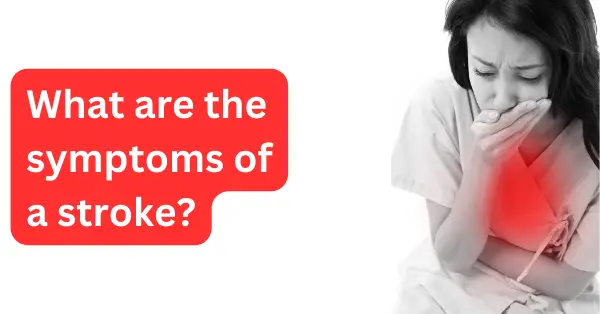Chronic pain can be a debilitating and persistent condition. It is estimated that up to 40% of the population suffers from some form of chronic pain, making its management an important consideration for people’s health and wellbeing. Fortunately, there are many effective strategies available to help manage chronic pain. In this article, we will explore what these strategies are and how they can be used to alleviate and reduce chronic pain. What is chronic pain?
Chronic pain is a persistent, long term condition that can be debilitating. Although it is a subjective experience, and therefore difficult to diagnose, chronic pain is generally considered to be more severe than regular acute pain.
Causes of Chronic Pain:
One of the most common causes of chronic pain is inflammation. Chronic inflammation can occur in any part of the body, including the joints, muscles and soft tissues. This type of pain is usually caused by an infection or autoimmune disorder and can be difficult to treat without medication or lifestyle changes. Other common causes of chronic pain include arthritis, fibromyalgia, nerve damage, and disc degeneration. Treatment options may include physical therapy, exercise, medications such as non-steroidal anti-inflammatory drugs (NSAIDs) or corticosteroids (steroid injections), and alternative therapies such as acupuncture or massage therapy.
In addition to treating underlying conditions that may be causing chronic pain, there are several lifestyle modifications that can help manage symptoms. These include regular exercise to increase strength and flexibility; stress management techniques such as relaxation exercises; maintaining a healthy diet low in sugar and processed foods; getting enough sleep; avoiding activities that further aggravate existing pain; keeping active but taking breaks if needed; participating in activities you enjoy instead of focusing on your condition; avoiding alcohol and smoking cessation when possible. Many people also find relief from chronic pain through complementary treatments like yoga and meditation which teach breathing exercises for relaxation purposes.
Understanding Your Pain:
Exercise is one of the most effective ways to manage chronic pain. Incorporating low-impact exercises such as yoga, tai chi, and light stretching can help alleviate and even prevent symptoms of chronic pain. Exercise helps by increasing blood flow to the affected areas which reduces stiffness, increases range of motion, and helps strengthen muscles that support your joints. Additionally, exercise releases endorphins which are natural chemicals in the brain that reduce stress levels and improve mood.
Mindfulness practices have also been shown to be beneficial in managing chronic pain. Mindfulness involves activities such as meditation and deep breathing that help focus on the present moment rather than dwelling on thoughts related to past or future events. When faced with chronic pain it can be easy to become overwhelmed but being mindful can help provide an outlet for those feelings and bring peace of mind when dealing with difficult situations. Furthermore, mindfulness has been linked to improved sleep quality which is key for overall health and well-being when living with chronic pain.
Non-Medication Strategies:
Physical Activity: Exercise can be an effective way to manage chronic pain by helping to increase endorphins in the body, strengthening muscles, and providing distraction from pain. Regular physical activity can help build strength and stability and reduce stiffness and fatigue. Recommended activities may include gentle stretching exercises, walking, yoga or tai chi.
Relaxation Techniques: Relaxation techniques such as deep breathing exercises, progressive muscle relaxation (PMR), mindfulness-based stress reduction (MBSR), meditation, guided imagery, biofeedback or hypnosis may also be beneficial for reducing chronic pain. It is important to practice these techniques on a regular basis so that they become part of your daily routine.
Sleep Hygiene: Good sleep hygiene can help improve your overall health and well-being. Developing healthy habits such as going to bed at the same time each night, avoiding caffeine late in the day, limiting screen time before bedtime, engaging in calming activities before bedtime such as reading or taking a warm bath can all contribute to improved sleep quality which is essential for managing chronic pain.
Medication Treatments:
Medication treatments are one of the most commonly used options to manage and alleviate chronic pain. Non-steroidal antiinflammatory drugs (NSAIDs) such as ibuprofen and naproxen can be effective at reducing inflammation, which helps reduce discomfort in many cases. Opioid medications, including oxycodone and hydrocodone, may also help relieve severe pain, but should only be used under close medical supervision due to their high potential for addiction or overdosing. Tricyclic antidepressants can also help reduce certain types of chronic pain by affecting the way that nerve cells transmit pain signals to the brain. Additionally, anticonvulsants such as gabapentin have been found to decrease nerve-related pain by altering electrical impulses in the central nervous system. Finally, topical anesthetics such as lidocaine can sometimes provide localized relief from mild aches and pains without having to take oral medications.
Self Care & Support Groups:
Self care is an important part of managing chronic pain. It can include things like stress reduction, exercise, healthy eating, good sleep habits and relaxation techniques such as yoga or meditation. Regular physical activity can also help to reduce the intensity and frequency of pain flare-ups by improving joint flexibility, strength and endurance. Additionally, support groups are a great way to get advice from people who understand your struggles with chronic pain. They provide a safe place for individuals to connect with one another and share coping strategies and tips that have worked for them in managing their own chronic pain conditions. This type of peer support encourages motivation, provides a sense of community, normalizes experiences and reduces feelings of isolation that are often felt by those living with chronic pain.
Conclusion:
At the conclusion of this blog, it is clear that managing chronic pain effectively requires a holistic approach. Incorporating healthy lifestyle changes, like eating nutritious foods, exercising regularly and reducing stress can help in alleviating chronic pain. Additionally, seeking the help of professionals such as physical therapists or chiropractors, who can provide an individualized treatment plan to reduce symptoms and improve overall quality of life, is also highly recommended. It is important to remember that everyone’s experience with chronic pain will be different so finding what works best for you should be your priority. If you are currently struggling with managing your chronic pain, please call us at (949) 722-8226 to schedule an appointment with our team of experts.


